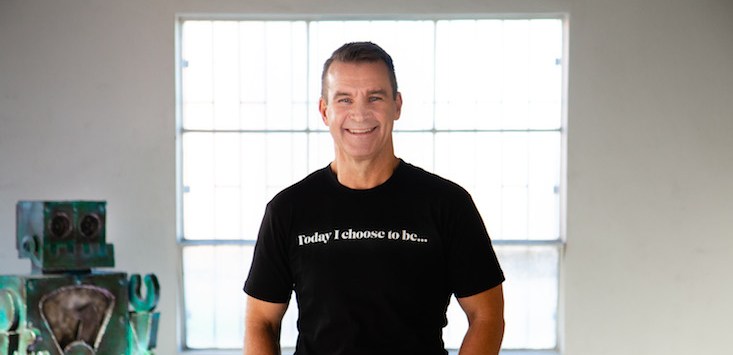
Mark LeBusque. Source: supplied.
We are living in very testing times indeed.
I refer to it as ‘business unusual’ as opposed to that term we have been hearing for ever in the boardrooms and offices across the world — ‘business as usual’.
What was business as usual?
You would hire technically competent people who could drive strong revenue growth, exercise cost containment, deliver new product and services through innovation, and provide a customer experience that differentiates you from the competitors. As these humans continued to deliver, they were then promoted into roles where they were in charge of more humans who continued to do all the things from the times of ‘business as usual’.
The business 101 stuff was alive and well.
Then COVID-19 happened.
Even organisations that only a matter of weeks ago were performing exceptionally well are now in the process of fighting for their very survival. Revenues have dried up, costs haven’t taken the same trajectory and there is now a crisis for leadership to navigate. One that we haven’t been subjected to since the GFC days, or perhaps even longer.
All of a sudden hierarchy, fancy titles, and big offices don’t seem to be as important as they were only a few weeks back.
Leadership is being tested like never before. There is no doubt a need for some short-term unpopular and painful decisions in order to just survive these times. Layoffs, stand-downs and salary reductions are now the go-to moves in order to protect the bottom line. It makes sense to do this right now given we are a hardwired survival species.
We’ve now moved well and truly into the phase of ‘business unusual’.
The human element
But there is one constant in all of this, just as there was back in the dark days of the GFC.
Organisations are made up of humans.
Well-intentioned and super adaptable humans who are capable of extraordinary things when faced with a crisis. Things that as a manager, you can tap into by adding a real human element to your day-to-day interactions with those in your care.
Humans will remember forever how they were treated in a time of real crisis. The secret is to find the balance of what’s needed and what’s right at a point in time.
So, what can leaders do in these times to protect the bottom line in the short-term, and not just survive but also thrive in the long-term?
Tap into being human.
Here’s my three tried and tested tips to bring more human into your leadership in a time of crisis.
1. Trust your humans
Nobody is turning up in these times of survival to destroy your business. Trust must be given. Harold McMillan once said: “A man who trusts nobody is apt to be the kind of man nobody trusts”. These are wise words indeed in these times.
Telling your people that you trust their motives (having your back), capability (doing their job well) and reliability (doing what they say they will) can build a human relationship that will help to get through the short-term pain and build engaged, motivated and productive staff for the long term.
2. Connect as humans, not outputs
Human beings are tribal and crave deep connection. Being human in these times means you need to devote time to the work of humans — and not just the technical work that is also important right now.
Show a genuine interest in what your team members do outside of work. Listen to them and learn things about them that will deepen connection – things like names of partners, children and pets, or their hobbies and passions outside of work.
3. Make every human belong
Human hardwiring means we all need to feel a strong sense of belonging so that we can understand how our individual contributions make our team, department and organisation function successfully. As a manager you can directly influence this sense of belonging by being crystal clear with your team members about why they are relevant and how they contribute to the success of the organisation. Making sense of their purpose and worth right now is a way to keep them motivated and inspired to get through a tough time.
It is possible to both protect your bottom line in the short term chaos, and inspire and motivate your humans to dip into the discretionary effort that will improve your bottom line as you move to a post COVID-19 world.
Just add more human.
NOW READ: Culture in the time of coronavirus: Five things Canva is doing to maintain its vibe
NOW READ: “I sat in the shower and cried”: The COVID-19 crisis is taking a toll on accountants


COMMENTS
SmartCompany is committed to hosting lively discussions. Help us keep the conversation useful, interesting and welcoming. We aim to publish comments quickly in the interest of promoting robust conversation, but we’re a small team and we deploy filters to protect against legal risk. Occasionally your comment may be held up while it is being reviewed, but we’re working as fast as we can to keep the conversation rolling.
The SmartCompany comment section is members-only content. Please subscribe to leave a comment.
The SmartCompany comment section is members-only content. Please login to leave a comment.